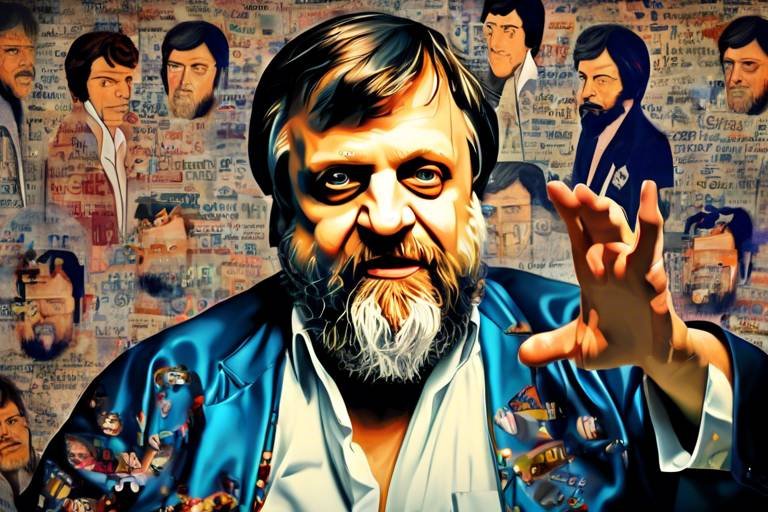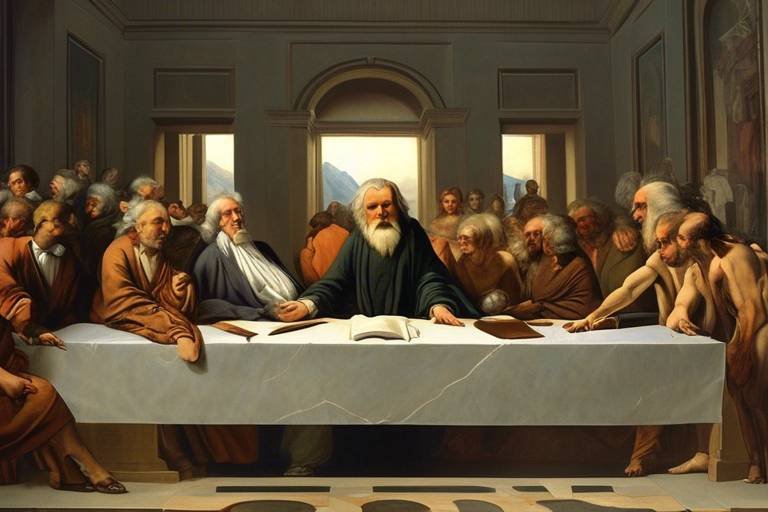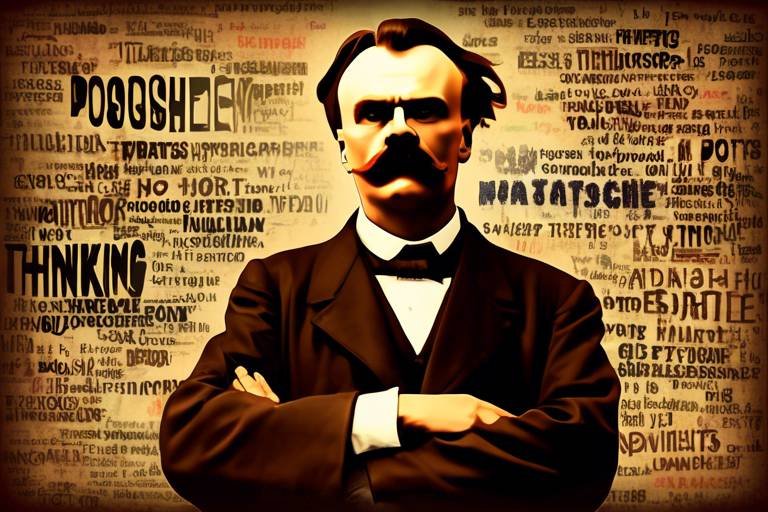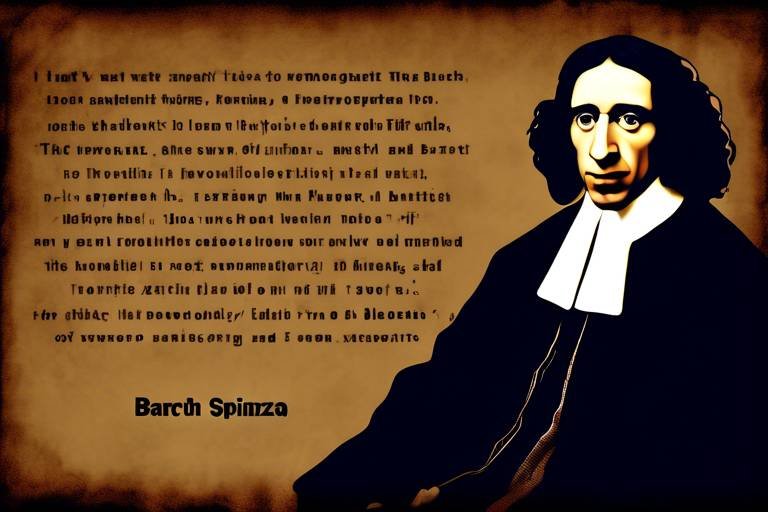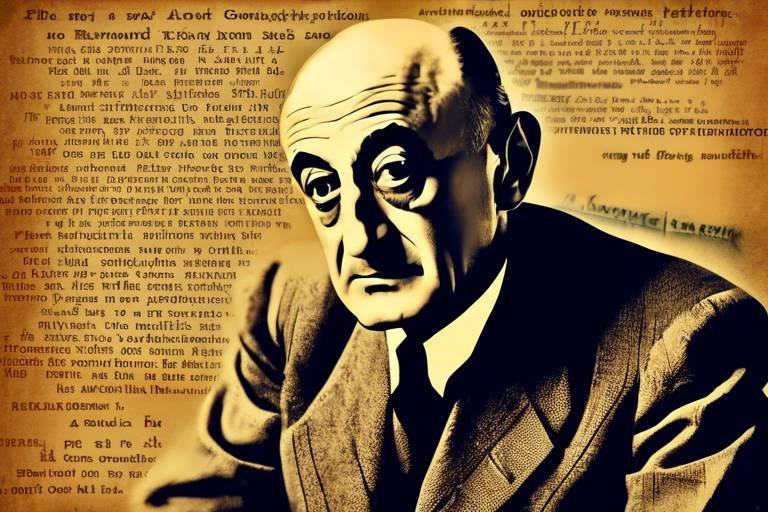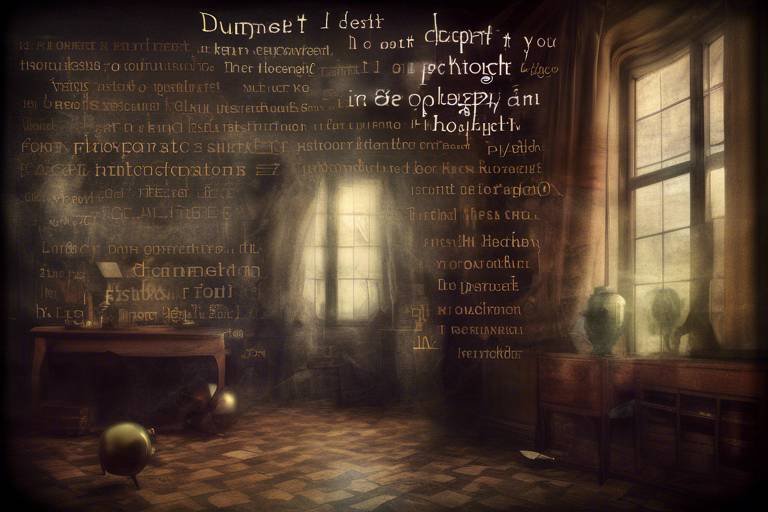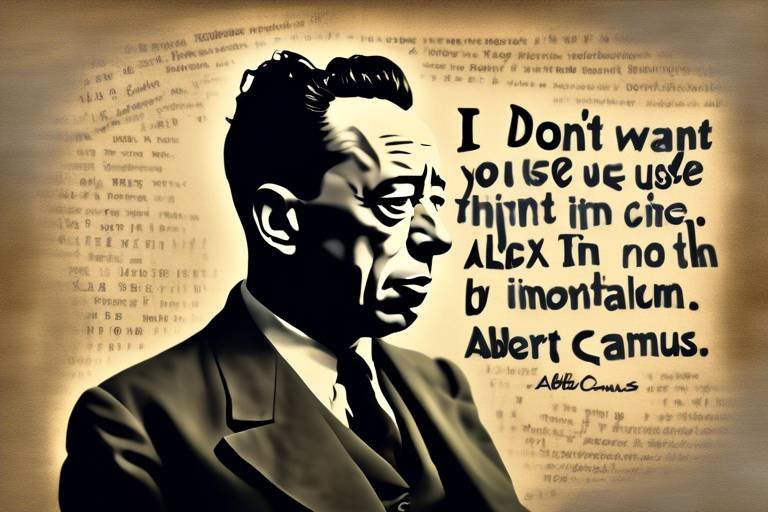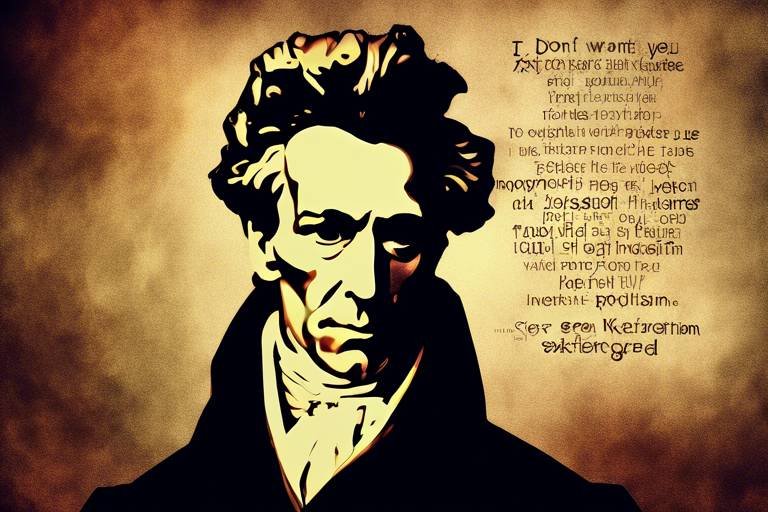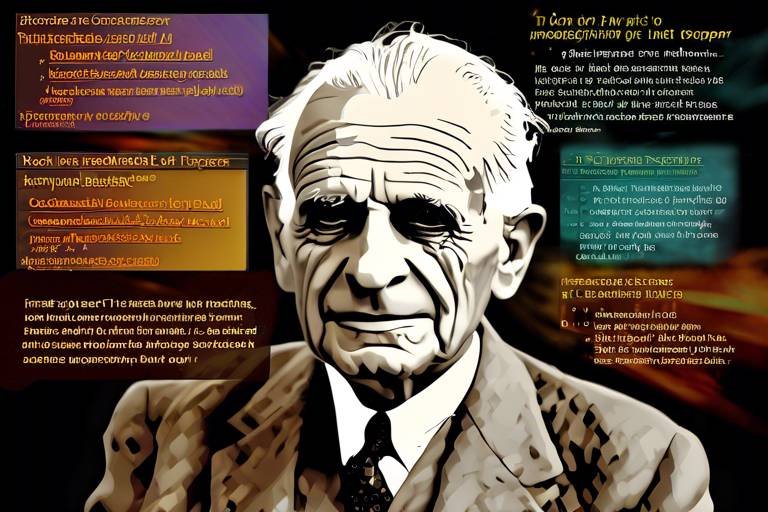Slavoj Zizek - The Elvis of Cultural Theory
When you think of cultural theory, you might not immediately conjure up images of a rock star, but that’s exactly what Slavoj Zizek represents in the intellectual arena. Just as Elvis Presley revolutionized music and brought a new energy to the stage, Zizek has injected a vibrant, often controversial, perspective into the world of philosophy and cultural criticism. His ideas are as provocative as they are entertaining, making him a polarizing figure who captures the imagination of both scholars and the general public alike.
Born in Slovenia, Zizek's journey into the limelight of cultural theory has been anything but conventional. He is not just a thinker; he is a performer in his own right, captivating audiences with his dynamic speaking style and charismatic presence. Much like Elvis, who blended different musical genres to create something entirely new, Zizek synthesizes various philosophical traditions—drawing from Lacanian psychoanalysis, Marxism, and Hegelian dialectics—to challenge our understanding of ideology, subjectivity, and the unconscious.
His rise to prominence can be likened to the meteoric ascent of rock legends, where charisma meets controversy. Zizek's ability to dissect complex ideas and present them in an accessible manner has made him a household name in cultural discussions. He often engages with popular culture, using films, music, and literature as a lens to explore deeper philosophical issues. This unique approach not only makes his work relevant but also resonates with a broad audience, bridging the gap between academia and everyday life.
In a world where cultural commentary often feels stale or overly academic, Zizek stands out as a vibrant voice. His arguments are not just theoretical musings; they are calls to action that challenge us to rethink our beliefs and assumptions. Much like Elvis, who dared to defy social norms and expectations, Zizek pushes the boundaries of cultural critique, making us question not just what we consume, but why we consume it. In doing so, he invites us to engage more deeply with the world around us, urging us to embrace the complexities of our desires and the ideologies that shape our lives.
As we delve deeper into Zizek's philosophy, we will discover the key concepts that define his work and explore how his influence has reshaped cultural critique in contemporary society. His ideas may provoke debate, but they also inspire a re-examination of our cultural landscape, much like the way Elvis redefined music and popular culture in the 20th century. So, buckle up as we embark on this intellectual journey, where Zizek's insights promise to be as revelatory as they are entertaining.

The Rise of Zizek
Slavoj Zizek's ascent in the intellectual world is nothing short of remarkable, akin to the meteoric rise of rock legends like Elvis Presley. Just as Elvis captivated audiences with his magnetic presence and controversial style, Zizek has combined his unique charisma with a penchant for provocative ideas, making him a standout figure in cultural criticism. Born in Slovenia in 1949, Zizek's formative years were steeped in the rich philosophical traditions of Europe, heavily influenced by thinkers such as Hegel, Marx, and Lacan. His early exposure to these intellectual giants laid the groundwork for his later works, which challenge the very fabric of our understanding of ideology and culture.
In the 1980s, Zizek began to gain prominence, not just as a philosopher but as a cultural commentator. His ability to dissect complex theories and present them in a digestible manner has made his work accessible to a broader audience. Much like how Elvis brought rock and roll to the mainstream, Zizek has taken dense philosophical concepts and infused them into popular culture, making them relevant to everyday life. His unique style blends humor with sharp critique, often using examples from cinema, literature, and everyday experiences to illustrate his points.
One cannot ignore the controversy that surrounds Zizek. Just as Elvis sparked debates about morality and youth culture in the 1950s, Zizek's ideas often ignite discussions that challenge the status quo. His willingness to tackle sensitive topics—ranging from politics to psychoanalysis—has positioned him as a polarizing figure in academia and beyond. Critics argue that his approach can be overly simplistic or even contradictory, yet this very tension is what keeps audiences engaged. Zizek thrives on contradiction, much like the duality of Elvis as both a cultural icon and a subject of intense scrutiny.
In summary, Zizek's rise is marked by a blend of charisma, controversy, and an unwavering commitment to challenging conventional thought. He has carved out a niche for himself in the intellectual landscape, much like Elvis did in the music industry. As we delve deeper into Zizek's key concepts and the role of pop culture in his philosophy, it becomes clear that his influence is as significant as it is provocative.

Key Concepts in Zizek's Philosophy
Slavoj Zizek’s philosophy is a kaleidoscope of ideas that challenge our understanding of society, culture, and the human psyche. At the core of his thought are several provocative concepts that push us to reconsider what we take for granted. Zizek's work is not just a collection of theories; it's an invitation to engage with the world in a more critical and nuanced way. One of his most significant contributions is his take on ideology, which he argues is not merely a set of beliefs but a complex system that shapes our realities in profound ways.
In Zizek's view, ideology operates at a level that often eludes our conscious awareness. He suggests that it is embedded in our everyday practices, rituals, and even our desires. For instance, think about how consumer culture influences our identities. We might believe we are making choices based on personal preference, but Zizek would argue that these choices are heavily mediated by ideological forces. This brings us to another key concept: subjectivity. Zizek posits that our identities are not fixed; rather, they are constructed through our interactions with the world around us. This fluidity of subjectivity means that we are constantly negotiating who we are in relation to the ideologies that surround us.
Another intriguing aspect of Zizek's philosophy is his exploration of the unconscious. He draws heavily from Lacanian psychoanalysis, suggesting that our unconscious desires are often at odds with our conscious beliefs. This creates a tension that can lead to what he terms "enjoyment" or jouissance. Zizek argues that this enjoyment is not just about pleasure; it can also be linked to our suffering and the contradictions within our desires. The relationship between desire and enjoyment is complex, and Zizek’s insights help us understand how our cravings can shape our experiences and identities in unexpected ways.
To further illustrate these points, let’s consider a few of Zizek's key concepts:
- Ideology: A system of beliefs that shapes our understanding of reality.
- Subjectivity: The fluid nature of identity influenced by external ideologies.
- Unconscious: The hidden desires that often conflict with our conscious beliefs.
- Enjoyment (Jouissance): The complex relationship between desire, pleasure, and suffering.
Moreover, Zizek's analysis extends to the cultural artifacts we consume daily, such as films, music, and literature. He employs these mediums as a lens to dissect deeper philosophical issues, showing how they reflect and shape our ideological landscapes. For instance, in his readings of popular films, Zizek often reveals the underlying ideological messages that influence our perceptions and beliefs. This unique approach allows him to connect with a broader audience, making complex philosophical ideas accessible and relevant to everyday life.
In summary, Zizek's philosophy is a rich tapestry of ideas that invites us to question our assumptions about ideology, subjectivity, and the unconscious. His work serves as a reminder that our understanding of the world is not as straightforward as it seems; instead, it is woven into a web of complex relationships that shape our identities and experiences. By engaging with Zizek's concepts, we can gain a deeper insight into the forces that drive our desires and the cultural narratives that influence our lives.

Ideology and Its Discontents
When we think about ideology, it often conjures images of rigid belief systems that dictate our understanding of the world. However, Slavoj Zizek takes a different approach, peeling back the layers of this complex concept to reveal its inherent contradictions and nuances. For Zizek, ideology isn't merely a set of beliefs; it's a living, breathing entity that shapes our perceptions and actions in ways we often overlook. He argues that ideology operates not just at a conscious level but also in the unconscious, influencing our desires and motivations without us even realizing it.
One of the most striking aspects of Zizek's critique is his assertion that ideology is deeply intertwined with our everyday lives. It manifests in the mundane, from the advertisements we consume to the films we watch. This is where Zizek's genius shines through: he uses popular culture as a mirror to reflect the ideological undercurrents of society. By analyzing films like The Matrix or They Live, he illustrates how these narratives serve as allegories for our ideological entrapments. They compel us to question the very structures that we take for granted, prompting us to ask: What lies beneath the surface of our reality?
In Zizek's view, ideology isn't just oppressive; it's also a source of fantasy. It provides a framework through which we can navigate the chaos of existence. This duality is what makes ideology so fascinating and, at times, troubling. On one hand, it can offer solace and a sense of belonging; on the other, it can bind us to outdated norms and expectations that stifle our individuality. Zizek challenges us to confront these contradictions, urging us to dismantle the comforting illusions that ideology often presents.
To further illustrate his point, Zizek introduces the concept of the Real, which refers to the unspeakable truths that lie outside our ideological frameworks. This is where things get particularly intriguing. The Real disrupts our constructed realities, revealing the gaps and inconsistencies within our belief systems. By confronting the Real, Zizek believes we can liberate ourselves from the shackles of ideology, allowing for a more authentic engagement with the world.
Ultimately, Zizek's exploration of ideology serves as a call to action. He implores us to recognize the discontents of our ideological commitments and to question the status quo. In a world rife with misinformation and cultural manipulation, his insights are more relevant than ever. By embracing the complexities of ideology, we can begin to carve out a space for genuine understanding and transformation.
- What is Zizek's main argument about ideology? Zizek argues that ideology is not just a set of beliefs but a complex system that shapes our perceptions and desires, often unconsciously.
- How does Zizek use pop culture in his critiques? He analyzes films and other cultural artifacts to reveal the ideological structures that influence our understanding of reality.
- What does Zizek mean by the 'Real'? The 'Real' refers to the uncomfortable truths that exist outside of our ideological frameworks, challenging our constructed realities.
- Why is Zizek's work relevant today? His insights into ideology and its discontents encourage critical thinking in a time of rampant misinformation and cultural manipulation.

The Real and the Imaginary
In the intricate tapestry of Slavoj Zizek's philosophy, the distinction between the real and the imaginary emerges as a pivotal theme that challenges our conventional understanding of reality. Zizek posits that what we perceive as "real" is often filtered through layers of ideology and subjective interpretation. This means that our grasp of reality is not merely a reflection of the world as it is, but rather a complex interplay of our desires, fears, and societal constructs.
To illustrate this, consider the way we engage with popular culture. Films, music, and literature often serve as mirrors reflecting our collective anxieties and aspirations. Zizek argues that these cultural artifacts are not just entertainment; they are sites of ideological struggle. For instance, a blockbuster movie might present an action hero who embodies our fantasies of power and control, yet simultaneously, it may also reinforce societal norms about masculinity and heroism. The hero's journey is a narrative we consume, but it shapes our understanding of what it means to be heroic in the real world.
Furthermore, Zizek emphasizes that the imaginary is not merely a false representation of reality; it plays a crucial role in how we navigate our lives. Our dreams, aspirations, and even our fears are constructed through the lens of the imaginary. This leads to a fascinating paradox: the imaginary can be just as influential, if not more so, than the real. For example, the idealized images of success and happiness we see on social media platforms can profoundly affect our self-perception and mental health, often leading to feelings of inadequacy or discontent.
In Zizek's framework, the real is not simply what exists independently of our perception; rather, it is intertwined with our subjective experiences. He suggests that to understand reality, we must first confront the fantasies that shape our perceptions. This confrontation is essential for achieving a deeper awareness of ourselves and the world around us. By dissecting the imaginary, we can begin to unravel the layers of ideology that influence our thoughts and behaviors.
In summary, Zizek's exploration of the real and the imaginary invites us to question our assumptions about reality. It challenges us to recognize that our understanding of the world is often colored by our desires and ideologies. As we navigate the complexities of contemporary culture, embracing this distinction can lead to a more profound comprehension of both our individual experiences and the broader societal structures that shape them.
- What is the difference between the real and the imaginary in Zizek's philosophy?
Zizek argues that the real is influenced by our subjective experiences and ideologies, while the imaginary encompasses our fantasies and perceptions that shape our understanding of reality.
- How does Zizek use popular culture to illustrate his ideas?
Zizek analyzes films, music, and literature as reflections of societal norms and collective anxieties, showing how they influence our perceptions of reality.
- Why is the imaginary important in understanding reality?
The imaginary plays a crucial role in shaping our desires and fears, which can significantly affect our self-perception and how we navigate the world.

Desire and Enjoyment
When we dive into the fascinating world of Slavoj Zizek, we quickly realize that his theories on desire and enjoyment are not just dry philosophical concepts; they are vibrant, pulsating elements of our everyday lives. Zizek argues that desire is more than just a simple craving for something; it's a complex interplay of our needs, wants, and the societal structures that shape them. Think of desire as a compass guiding us through the maze of our existence, often leading us to unexpected places. In Zizek's view, desire is intricately linked to enjoyment, which he posits is a fundamental aspect of human experience. But what does he mean by enjoyment? Is it merely pleasure, or is there something deeper at play?
To grasp Zizek's perspective, we must consider the paradox of enjoyment. He suggests that enjoyment is not just found in the fulfillment of our desires but also in the tensions and frustrations that accompany them. It's like a roller coaster ride; the thrill is not merely in reaching the top but in the exhilarating drops and unexpected turns along the way. This idea challenges the conventional wisdom that happiness is simply the absence of desire or conflict. Instead, Zizek encourages us to embrace our desires, recognizing that they often lead to a richer experience of life, even when they result in discomfort or dissatisfaction.
Furthermore, Zizek's examination of enjoyment reveals a critical insight: that our desires are often shaped by ideological forces. For instance, consider how advertising creates a sense of need for products that we never knew we wanted. This manipulation of desire raises questions about the authenticity of our enjoyment. Are we truly enjoying what we desire, or are we merely participating in a performance dictated by societal expectations? Zizek's work invites us to peel back the layers of our desires, examining the underlying motives and influences that shape them.
In essence, Zizek's exploration of desire and enjoyment serves as a mirror reflecting our cultural landscape. It challenges us to reconsider our relationship with our desires, pushing us to ask critical questions about what truly brings us satisfaction. Are we seeking genuine enjoyment, or are we caught in a cycle of perpetual desire, always reaching for something just out of grasp? To illustrate this, we can consider the following table that outlines key differences between desire and enjoyment:
| Aspect | Desire | Enjoyment |
|---|---|---|
| Definition | Craving for something | Experience of pleasure |
| Nature | Often unfulfilled | Can be fulfilled or unfulfilled |
| Source | Influenced by societal norms | Personal and subjective |
| Outcome | Can lead to dissatisfaction | Can lead to deeper understanding |
In conclusion, Zizek's insights on desire and enjoyment encourage us to navigate our lives with a critical eye, recognizing the complex interplay between our wants and the societal structures that influence them. By doing so, we can cultivate a more authentic experience of enjoyment that transcends mere consumerism and taps into the deeper aspects of our humanity.
- What is Zizek's view on desire? Zizek sees desire as a complex interplay shaped by societal norms and personal experiences, influencing our actions and perceptions.
- How does Zizek define enjoyment? Enjoyment, according to Zizek, is not just pleasure but includes the tensions and frustrations that accompany our desires.
- Can desire lead to genuine enjoyment? Yes, Zizek argues that while desire can lead to dissatisfaction, it can also enrich our experience of life and lead to deeper understanding.

The Role of Pop Culture
When you think of Slavoj Zizek, it might not be the first thing that comes to mind, but his interactions with pop culture are nothing short of fascinating. Zizek has a unique talent for using movies, music, and even memes as a lens to explore complex philosophical ideas. It's like he’s a DJ mixing tracks of thought, taking samples from the mainstream and remixing them into something profound. By analyzing cultural artifacts, he opens up discussions about our collective psyche, desires, and societal norms.
For Zizek, pop culture isn't just entertainment; it's a reflection of our deepest anxieties and aspirations. He often dives into films, dissecting their narratives to reveal the underlying ideologies at play. For instance, in his analysis of popular films like The Matrix or Fight Club, he doesn't just discuss the plot; he uses them as a springboard to question our understanding of reality and identity. It's as if he’s saying, "Look closer! What you see on the surface is just the tip of the iceberg." This approach allows him to connect with audiences who might not be familiar with heavy philosophical texts, making complex ideas accessible and relatable.
One of the key aspects of Zizek's engagement with pop culture is his ability to challenge the status quo. He often points out how films and music can perpetuate certain ideologies, subtly influencing our beliefs and behaviors. By critiquing these cultural products, Zizek encourages us to question our own consumption and the narratives we accept without thought. In a way, he acts as a cultural watchdog, urging us to be more conscious of the media we consume.
Moreover, Zizek's interpretations often reveal the contradictions inherent in our desires. For example, he might analyze a romantic comedy to show how it reflects societal expectations about love and relationships, while simultaneously critiquing those very norms. It's like peeling an onion—each layer reveals more about our cultural fabric, exposing the tears and the beauty intertwined within.
To illustrate Zizek's approach, consider the following table that outlines some of his notable analyses in pop culture:
| Film/Music | Key Themes Analyzed | Philosophical Insights |
|---|---|---|
| The Matrix | Reality vs. Illusion | Questioning our perception of reality and freedom |
| Fight Club | Consumerism and Identity | Exploring the crisis of masculinity and self-identity |
| Pop Music | Desire and Enjoyment | How music reflects and shapes our desires |
In conclusion, Zizek's engagement with pop culture is not just a side note in his work; it is a crucial part of how he communicates complex ideas to a broader audience. By using familiar cultural references, he invites us to think critically about the world around us. So the next time you watch a movie or listen to a song, remember Zizek's perspective: there’s always more beneath the surface, waiting to be uncovered.
- What is Slavoj Zizek known for?
Zizek is a Slovenian philosopher and cultural critic known for his work in psychoanalysis, Marxism, critical theory, and film criticism. - How does Zizek use pop culture in his work?
He analyzes films, music, and other cultural artifacts to explore deeper philosophical themes and societal ideologies. - Why is Zizek's approach to pop culture significant?
His approach makes complex philosophical ideas accessible to a wider audience and encourages critical thinking about cultural consumption.

Zizek's Influence on Cultural Critique
Slavoj Zizek's influence on cultural critique is nothing short of revolutionary. Much like how Elvis Presley redefined the music scene, Zizek has reshaped the landscape of critical theory and cultural studies. His approach is a fascinating blend of philosophy, psychoanalysis, and a keen awareness of popular culture, which allows him to dissect complex ideas in a way that resonates with both academics and the general public. Zizek's ability to engage with contemporary issues while drawing from a rich tapestry of philosophical traditions makes him a unique voice in today’s intellectual arena.
One of the most remarkable aspects of Zizek's work is his knack for making dense theoretical concepts accessible. He often employs humor and pop culture references to illustrate his points, which not only entertains but also provokes deeper thought. For instance, he famously analyzes films such as The Matrix and Fight Club, using them as springboards to discuss ideology, subjectivity, and the unconscious. This method of blending high theory with low culture is akin to how Elvis infused rock and roll with elements of blues and gospel, making it palatable to a broader audience.
Zizek's impact extends beyond academia; he has permeated media and public discourse. His engaging speaking style and provocative ideas have made him a sought-after commentator on various platforms, from TED Talks to popular podcasts. Just as Elvis became a cultural icon through television and film appearances, Zizek has leveraged modern media to amplify his voice, reaching audiences that traditional scholars might overlook. This accessibility has sparked discussions around complex themes such as capitalism, identity politics, and globalization, making them more relatable to everyday life.
Moreover, Zizek's critiques often challenge prevailing narratives, urging us to reconsider our assumptions about society. He advocates for a critical stance toward ideology, pushing us to recognize the hidden structures that shape our beliefs and behaviors. This is reflected in his analysis of current events, where he emphasizes the importance of questioning dominant ideologies. For example, during the recent global crises, Zizek has highlighted how our responses are often influenced by underlying ideological frameworks, compelling us to look beyond surface-level reactions.
In summary, Zizek's influence on cultural critique is profound and multifaceted. He invites us to engage with the world critically, using a blend of humor, pop culture, and deep philosophical inquiry. His work encourages a dialogue that is both enlightening and challenging, reminding us that the complexities of our society deserve rigorous examination. Just as Elvis left an indelible mark on music and culture, Zizek has carved out a significant niche in the realm of cultural theory, making him an essential figure in contemporary thought.
- What makes Zizek's approach to cultural critique unique? Zizek combines philosophy with pop culture, making complex ideas accessible and engaging.
- How has Zizek influenced public discourse? His provocative ideas and engaging speaking style have made him a popular commentator on various media platforms.
- Can Zizek's theories be applied to everyday life? Yes, his critiques encourage us to question our assumptions and the ideologies that shape our beliefs and behaviors.

Engagement with Contemporary Issues
Slavoj Zizek is not just a philosopher who sits in an ivory tower; he is a dynamic commentator on the world around us. His engagement with contemporary issues is akin to a rock star stepping off the stage to interact with the crowd. Zizek dives deep into the currents of politics, economics, and social movements, often provoking thought and igniting debate. Just like Elvis shook up the music scene, Zizek shakes up our understanding of modern dilemmas.
One of the most striking aspects of Zizek's commentary is his ability to connect seemingly disparate events and trends. For instance, he often draws parallels between the rise of populism and the pervasive influence of ideology in our daily lives. He argues that the spectacle of contemporary politics is not merely a series of events, but a complex web of desires and fears that are manipulated by those in power. This perspective encourages us to look beyond the surface and question the narratives we are fed.
Moreover, Zizek's analysis of economic systems is particularly relevant today, as we navigate the aftermath of global crises. He critiques capitalism not just as an economic system, but as a cultural phenomenon that shapes our identities and desires. In his view, the commodification of everything—from our personal relationships to our political affiliations—reflects a deeper malaise within society. He challenges us to rethink our relationship with consumption and to consider the implications of our choices.
When it comes to social movements, Zizek does not shy away from controversy. He often engages with issues like identity politics and intersectionality, arguing that while they are important, they should not overshadow the larger structural issues at play. His approach encourages a more holistic understanding of social justice, one that recognizes the interconnectedness of various struggles. By doing so, Zizek invites us to consider how we can work together across different movements to create a more equitable society.
In his discussions, Zizek employs pop culture references to make complex ideas more accessible. He famously analyzes films and literature, using them as a lens to explore philosophical concepts. For example, he might dissect a popular movie to illustrate how it reflects societal anxieties or to critique the underlying ideologies present in the narrative. This method not only makes his work engaging but also demonstrates the relevance of cultural products in understanding our contemporary reality.
Ultimately, Zizek's engagement with contemporary issues serves as a reminder that philosophy is not just an academic exercise; it is a tool for navigating the complexities of our world. His provocative insights challenge us to reconsider our beliefs and assumptions, urging us to become more active participants in the discourse surrounding the pressing issues of our time. Just as Elvis redefined popular music, Zizek redefines the way we think about culture and society.
- What is Slavoj Zizek known for?
Zizek is known for his provocative ideas in cultural theory and philosophy, often using pop culture to illustrate complex concepts. - How does Zizek engage with contemporary issues?
He critiques political and economic systems and examines social movements, emphasizing the interconnectedness of various societal struggles. - Why is Zizek's work considered controversial?
His ideas often challenge conventional thought, leading to debates and differing opinions within academic and public spheres.

Criticism and Controversy
Slavoj Zizek, often dubbed the Elvis of Cultural Theory, is no stranger to criticism and controversy. His provocative ideas and unapologetic style have sparked heated debates across the intellectual landscape. While many celebrate his ability to challenge the status quo, others argue that his work is often muddled and overly complex, leading to misunderstandings and misinterpretations. Critics frequently point to his tendency to blend high theory with pop culture references, suggesting that this approach trivializes serious philosophical discourse.
Moreover, Zizek's views on various socio-political issues have drawn fire from both supporters and detractors. For instance, his commentary on capitalism and ideology often oscillates between insightful critiques and controversial assertions that can alienate even his most ardent fans. Some argue that his position can sometimes appear as a form of intellectual showmanship, where the aim is to provoke rather than to clarify. This has led to a perception that he is more interested in being a celebrity intellectual than a serious philosopher.
To illustrate the divide in opinions about Zizek, we can look at a few key points of contention:
- Pop Culture Analysis: While some laud his use of films and music to explicate complex theories, others feel that this method reduces the depth of philosophical inquiry.
- Political Commentary: His views on contemporary politics, especially regarding the far-left and capitalism, have been met with both support and backlash, often leading to polarized reactions.
- Misinterpretation of Ideas: Critics argue that his dense writing style and rapid-fire delivery can lead to misinterpretations of his core ideas, making it difficult for audiences to fully grasp his arguments.
Despite the controversies, Zizek's impact on cultural theory remains undeniable. His ability to stir the pot and provoke thought has kept him relevant in a rapidly evolving intellectual landscape. The debates surrounding his work often reflect broader societal tensions, making his critiques a valuable contribution to contemporary discourse. Ultimately, whether one views him as a genius or a charlatan, Zizek undeniably occupies a unique position in the realm of cultural criticism, where the line between admiration and criticism often blurs.
- What are the main criticisms of Slavoj Zizek's work? Critics often point to his blending of pop culture with serious theory, his complex writing style, and his sometimes controversial political opinions.
- How has Zizek influenced contemporary cultural theory? Zizek has reshaped cultural critique by merging philosophy with popular discourse, making complex ideas more accessible through relatable examples.
- Why do some people view Zizek as a celebrity intellectual? His provocative style, media presence, and tendency to engage with pop culture can lead to perceptions that he prioritizes fame over rigorous philosophical analysis.
Frequently Asked Questions
- Who is Slavoj Zizek?
Slavoj Zizek is a Slovenian philosopher and cultural critic known for his provocative ideas and unique approach to cultural theory. Often referred to as the "Elvis of Cultural Theory," Zizek blends philosophy with pop culture, making complex ideas accessible to a wider audience.
- What are some key concepts in Zizek's philosophy?
Zizek's philosophy includes several compelling concepts such as ideology, subjectivity, and the unconscious. He challenges conventional thought by examining how these concepts shape our understanding of contemporary culture and our identities within it.
- How does Zizek define ideology?
Zizek critiques traditional notions of ideology, suggesting that it is not merely a set of beliefs but a complex system that influences societal norms and behaviors. He argues that ideology often conceals its own contradictions, making it a crucial element in understanding cultural dynamics.
- What is the difference between the real and the imaginary in Zizek's work?
In Zizek's framework, the distinction between the real and the imaginary is vital. He posits that our perceptions of reality are often shaped by imaginary constructs, which can lead to misunderstandings about our actual experiences and societal conditions.
- How does Zizek relate desire to enjoyment?
Zizek connects desire to enjoyment by suggesting that our desires are often intertwined with our experiences of pleasure. This relationship plays a significant role in shaping both personal and collective identities, highlighting the complexities of human motivation.
- What role does pop culture play in Zizek's analysis?
Zizek frequently uses pop culture as a lens to explore deeper philosophical issues. By analyzing films, music, and literature, he illustrates how these cultural artifacts reflect and influence societal beliefs and values.
- How has Zizek influenced cultural critique?
Zizek has reshaped cultural critique by merging philosophical insights with popular discourse. His unique approach has made significant impacts across academia, media, and public thought, ensuring his relevance in contemporary intellectual discussions.
- What contemporary issues does Zizek engage with?
Zizek actively engages with a variety of contemporary issues, including politics, economics, and social movements. His commentary reflects a dynamic interaction with the world, making his ideas pertinent to current events and debates.
- What criticisms does Zizek face?
Despite his popularity, Zizek faces criticism from various scholars and commentators. Some argue that his ideas can be overly controversial or misinterpreted, leading to lively debates within academic and public spheres about the validity and implications of his theories.

